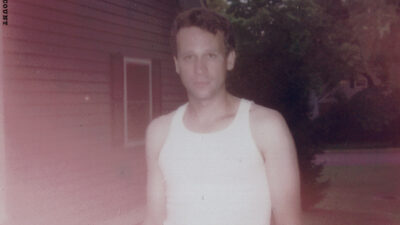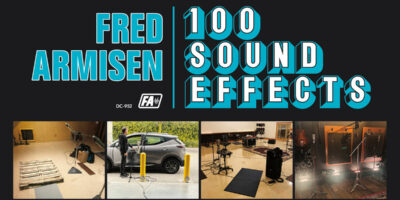Genre: Indietronica
Favorite Tracks: “Life Worth Living”
The album, as we know it, is dying. There are myriad reasons for this: streaming services like Spotify, Apple Music, and YouTube have cannibalized the listening market, drawing people away from physical media in favor of digital and in the process rewiring people’s habits to favor playlists over records; labels have in turn refocused their efforts on winning The Streaming Wars, going so far as to literally change the names of songs that’ve gone viral on TikTok to boost search engine optimization; artists themselves have taken note of the shifting paradigm, launching campaigns to stream singles rather than full-length records to climb the charts. And now, we’re in the midst of a global pandemic that has crippled an already fragile music industry, closing clubs, pushing back record release dates, plummeting sales and streaming figures, and shoving artists on the peripheries closer to the cliff.
But the album is not going to actually die, it’s just going to look a lot different. Not unrecognizable—there’ll still be plenty of traditional albums to go around—but we’re closing in on a future in which the biggest records will be as chaotic as Car Seat Headrest’s newest, MAKING A DOOR LESS OPEN. In a short essay announcement of the record, frontman Will Toledo stressed that the album is a concerted effort to shift the sound and structure of the band. His goal was to compile a collection of songs with “special energies, each one unique and different in its vision,” blending a wide array of sonic elements from EDM to hip hop to doo-wop to rock. In his mind, these tracks, disparate in source as they are, boiled down to folk songs because they can be played and sung in different ways and speak to the central themes of folk music.
After listening to MAKING A DOOR LESS OPEN a number of times, none of that really holds water. It certainly shifts the band’s sound into a hectic, electronic direction, but the journey to get there is riddled with speed bumps and the destination is far from satisfying. Each track does have its own unique feel or energy, but they are neither feelings nor energies that you can convincingly call “good.” And I certainly don’t hear the vast palette of influences Toledo claims to be channeling. There is one part of the essay that, if albeit mischaracterized, does stick. He writes about our current moment, in which music stands at a crossroads, and that there is an unnamed genre on the precipice of invention. Toledo doesn’t know what this burgeoning genre will be called or what it will sound like or who will be making it, but he does aptly identify the ways in which this shift will come into fruition: new platforms to hear it on, new methods to make it with, and new people to fall in love with it. He falters with what he believes the core connection between those will be: love. In reality, the blurry vision he’s divining is not a genre but the general music landscape. One that will continue to stray from the traditional structure we’ve grown accustomed to; one that will bend further to capital’s will.
Major labels will keep devouring the smaller ones, scooping up every last artist into the arms of the Big Three conglomerates (Sony, Universal, and Warner). They will continue to leverage their power over their artists by stressing the importance of streaming (“That’s where the people are, after all,” they’ll say) and whatever new avenues of exploitation they’ll dream up next, each iteration of which will come with fewer fractions of pennies into the pockets of creators. We’ll see the permanence of albums fade away. Much like MAKING A DOOR LESS OPEN fidgets with the record’s construction depending on the medium (the tracklisting and tracks themselves shuffle depending on the LP, CD, or digital iteration you hear it on), artists will put out records that will look unrecognizable mere months after release, as track titles are changed for SEO, shuffled around for maximum streams, or switched out altogether with whatever demo pops off on TikTok the week after album release. This is a future we’ve already dipped our toes into; it won’t be long before these labels take the plunge.
This is a vision that I’m sure would terrify Toledo, but perhaps he can take solace knowing MAKING A DOOR LESS OPEN won’t serve as a blueprint for the Big Three because it flopped on its face. The record is not quite as bad as some are making it out to be—there are a couple nice tracks to hold onto—but it’s absolutely the worst Car Seat Headrest release in a decade. There’s all sorts of baffling moments on this, but the most perplexing that sticks with me throughout is how Toledo managed to make a lot of good sounds sound bad. Each track has little nuggets sprinkled in that should serve towards creating something good, but are instead surrounded by a distracting, disheveled mess. People who give the album one spin can be forgiven for writing this record off in its entirety as those little moments are easy to miss. “Life Worth Missing,” the best track on here, would still be the worst cut on TWIN FANTASY or TEENS OF DENIAL, but it’s still worth including in the Car Seat Headrest rotation. Toledo channels The National, giving off a cool Matt Berninger affect alongside massive drums that would slot in perfectly to the Ohio band’s catalogue—it’s the only point in the record that convincingly delivers on the arena rock aspirations the band affixed to the album.
There are plenty of moments to bag on, but the most glaring is “Hollywood,” a track that pokes fun at Tinseltown with swipes that are rendered feckless by the embarrassing execution; it feels like you’re watching the band fill their diapers. I’m all for calling out Hollywood sickos but the writing is lazier than the pedophiles he’s nauseated by. It’d been far better had he scrapped the vocal takes and simply read out the names in Jeffrey Epstein’s black book. Show, don’t tell, Will.
In trying to subvert expectations and further elevate their artistic claim, Car Seat Headrest fell into the same trap bands get snared in once they’ve reached commercial and critical acclaim: making the ~different~ album. And just like nearly every other attempt of its kind, it whiffs. Diehard fans will do the mental gymnastics to rationalize this as a misunderstood stroke of genius or they’ll do the rational thing and write this off as a misfire. Casual listeners will no doubt be more gun shy about LP13 and for good reason. Toledo and company have now crossed a rubicon that can just as easily be uncrossed, but it could just as well be signalling a more dire future. It may take a while for the band to find their footing, but the mounds of evidence in their back catalogue suggest we will hear great Car Seat Headrest records down the road.
For all its failures, MAKING A DOOR LESS OPEN stumbled its way into unlocking a door to the future, a glimpse into what normal will look like in a few years time. What it lacks in quality music, it makes up for in subconscious premonition; that doesn’t make it a good album (it barely passes as mediocre), but it’s an enlightening listen nonetheless. At least we can take solace knowing we’ll never have to see zoomers doing the renegade to “Can’t Cool Me Down.”















Comments